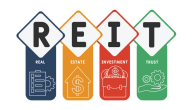
Cash Flow vs. Appreciation in Real Estate Investing
Owning real estate can be a powerful wealth-building tool, but the path you choose plays a crucial role in reaching your financial goals. Two distinct strategies dominate the landscape: cash flow investing and appreciation investing. Each caters to different objectives and comes with its own set of rewards and challenges. Understanding these nuances is essential before venturing into the exciting world of real estate.
Cash Flow: The Income Engine
Imagine a steady stream of income flowing into your pocket every month. Cash flow investing strives to build this reliable income stream through rental properties. You acquire income-generating assets like single-family homes or small multi-unit buildings, collect rent from tenants, and use that income to cover expenses and generate a profit. The focus here is on positive cash flow, meaning your rental income exceeds your operating expenses, mortgage payments, and taxes.
Advantages of Cash Flow Investing:
- Predictable Income: Consistent rent payments offer a level of certainty not found in other investment avenues.
- Portfolio Diversification: Real estate adds a unique asset class to your portfolio, mitigating risk across different markets.
- Tax Advantages: Depreciation deductions and other tax benefits can further enhance your returns.
Challenges of Cash Flow Investing:
- Active Management: Finding and managing tenants, handling repairs, and ensuring smooth operations require time and effort.
- Lower Returns: Compared to appreciation, cash flow typically generates lower overall returns.
- Market Fluctuations: Rent income can be impacted by economic downturns or vacancy periods.
Appreciation: The Long-Term Game
If your eyes are set on maximizing your asset value over time, appreciation investing might be your calling. Here, the focus shifts from immediate income to long-term property value growth. You might invest in condos, fixer-uppers, or land with the expectation of selling them later for a significant profit. This strategy hinges on identifying properties with high growth potential, fueled by market trends, development plans, or neighborhood revitalization.
Advantages of Appreciation Investing:
- Potentially Higher Returns: Successful appreciation can yield substantial capital gains upon property sale.
- Passive Approach: Once you acquire the property, active management is often minimal compared to cash flow investing.
- Tax Benefits: Selling after holding the property for long periods can qualify for lower capital gains tax rates.
Challenges of Appreciation Investing:
- Unpredictable Returns: Market fluctuations and holding costs can impact your final profit significantly.
- Long-Term Holding: This strategy requires patience and the ability to hold the property for several years.
- Exit Strategy: Selling the property at the right time to maximize profit can be challenging.
Examples
Example 1: Investing for Cash Flow
Suppose you purchase a rental property in a stable, established neighborhood with a strong demand for rental units. The property is an older building, but it’s well-maintained and has a low purchase price. You calculate that after accounting for expenses like mortgage payments, property taxes, insurance, and maintenance, the monthly rental income will provide a positive cash flow of, say, $500 per month.
In this scenario, your primary goal is to generate a steady stream of passive income from the rental property. The property itself may not appreciate significantly in value over time, but it provides a consistent cash flow that can supplement your overall income. This strategy is often favored by investors seeking a reliable source of income, particularly those nearing or in retirement.
Example 2: Investing for Appreciation
Now, consider a different scenario where you purchase a property in an up-and-coming neighborhood with potential for future growth and development. The property itself may require some renovations or improvements, but you anticipate that the area will experience an increase in demand and property values in the coming years.
In this case, your primary focus is on the potential for capital appreciation rather than immediate cash flow. You may even have to accept a negative cash flow initially, as the costs of carrying the property (mortgage, taxes, etc.) may exceed the rental income. However, your goal is to hold the property for several years and eventually sell it at a higher price, realizing a substantial capital gain.
This strategy is often pursued by investors who are willing to take on more risk and hold properties for a longer period, betting on the potential for significant appreciation in property values. It can be more speculative, but if the area develops as expected, the rewards can be substantial.
In summary, the cash flow example focuses on generating a steady stream of rental income, while the appreciation example prioritizes the potential for long-term capital gains through property value increases. The choice between the two strategies depends on an investor’s goals, risk tolerance, and investment horizon.
| Cash Flow Investing | Appreciation Investing | |
|---|---|---|
| Positives | – Provides steady passive income stream | – Potential for significant capital gains |
| – Relatively lower risk | – Leverages property value appreciation | |
| – Consistent returns | – Tax benefits (e.g., capital gains treatment) | |
| – Income can offset expenses | ||
| Negatives | – Limited potential for capital appreciation | – Higher risk and speculative nature |
| – Dependent on occupancy rates and rental market | – Negative cash flow possible initially | |
| – Expenses (maintenance, repairs, etc.) | – Longer investment horizon required | |
| – Potentially lower overall returns | – Success depends on accurate market forecasting | |
| – Carrying costs can be high |
Finding Your Investment Sweet Spot
Deciding between cash flow and appreciation isn’t about choosing a winner; it’s about aligning your investment strategy with your unique needs and goals. Consider the following questions to guide your decision:
- Financial Goals: Do you prioritize immediate income or long-term wealth creation?
- Risk Tolerance: Are you comfortable with market uncertainties and potentially lower returns?
- Time Horizon: Can you commit to holding a property for an extended period for appreciation?
- Investment Experience: Are you prepared to handle the responsibilities of managing tenants and properties?
Remember, real estate investing is not a get-rich-quick scheme. Both cash flow and appreciation strategies require thorough research, sound financial planning, and a calculated approach. By understanding the nuances of each path and aligning your investment strategy with your personal goals, you can unlock the vast potential of the real estate market and embark on a rewarding journey towards financial success.
Here is a list of websites that contain information on real estate investing:
- BiggerPockets.com – This is one of the largest online communities dedicated to real estate investing. It offers forums, blogs, podcasts, and educational resources on various real estate investing strategies.
- RealEstateInvesting.com – This website provides comprehensive guides, articles, and resources on different aspects of real estate investing, including rental properties, flipping, and real estate investing analysis.
- ThinkRealty.com – This site offers news, articles, and resources specifically focused on real estate investing, covering topics such as financing, market trends, and investment strategies.
- RealEstateInvestingMastery.com – This website offers courses, podcasts, and resources specifically focused on real estate investing education and strategies.
These websites offer a wealth of information, guides, forums, and resources to help both novice and experienced real estate investors learn about various investment strategies, market trends, and analysis techniques.










Leave a Reply